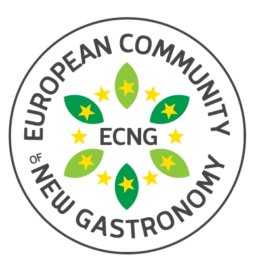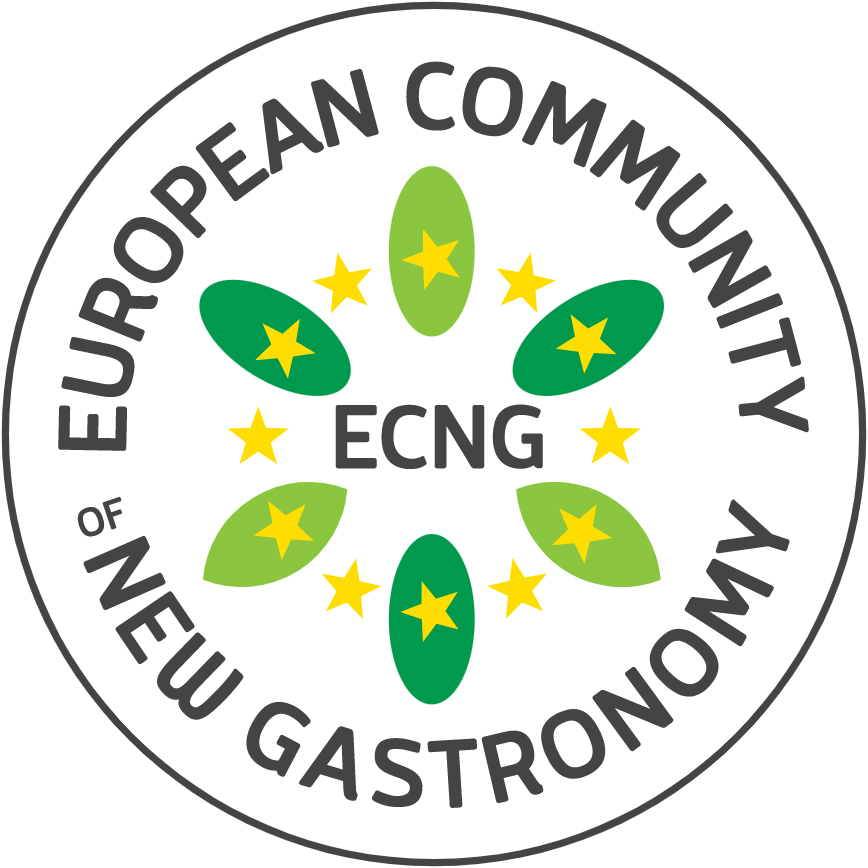
European Community of New Gastronomy
The European Community of New Gastronomy (ECNG) is a non-profit association founded on the initiative of personalities from the Royal Academy of Gastronomy (Spain), from the Polish Academy of Gastronomy, Swedish Academy of Gastronomy and the Portuguese Academy of Gastronomy. It is currently based in Lisbon and has the institutional and logistical support of Oeiras Municipality, where it carries out most of its activity.
In addition to the National Academies of European Countries that wish to join, it is intended to integrate, as it is consolidated, renowned personalities, both individual and collective, from the world of gastronomy from all European Union countries, representing the most varied social and professional areas related to the theme of gastronomy and gastronomic culture, as well as health and nutritional education themes (gastronomes, artists, doctors, lawyers, economists, cookers, wine producers, farmers, journalists, researchers, etc.).
It is also intended to attract to collaborate in this project the Universities, the National and Regional Gastronomic Academies and Confraternities, as well as reference companies in these areas, in the various countries of the European Union, which could become co-sponsors and main funders. The ECNG will be co-led by a member of the Portuguese Academy of Gastronomy, with governmental experience in regional development policies and a strong knowledge of European issues and institutions, and a member of the Royal Spanish Academy of Gastronomy, a unique figure in European gastronomy and promoter of Spanish gastronomic transformation.
The aim of ECNG is, as stipulated in the statute, «to defend and promote the cultural values of Gastronomy in the context of the 21st century in European countries, encompassing its historical, cultural, scientific and nutritional aspects, the promotion of healthy eating and its influence on family and social relations and social well-being, and of taste education».
The ECNG is highly sponsored by the International Academy of Gastronomy.
The European Community of New Gastronomy, was established in Lisbon in 2015, under the impulse of the Gastronomy Academies of Portugal, Spain, Poland and Sweden, with the main objective of following up on the Resolution of 14 March 2014, of the European Parliament.
The pandemic caused by Covid19, which had and has dramatic effects in terms of health, education, the economy and the social plan of the populations, also brought a new awareness to the issue of public health, to the importance of food health and to all sustainability and solidarity issues that have become a general concern.
It is in this context that the Community came to study and discuss a new concept: “The New Gastronomy”, with Gastronomy being understood in its broadest sense as Food, encompassing the entire Food Chain, from production to the consumer and which it represents today on average 1/3 of the GDP of European countries. It covers agricultural production, fisheries and livestock, the food industry, distribution and trade, individual consumption, hotels and restaurants and other important activities such as tourism and nutrition.
Another of our reflections concerns the “Right to Food”, one of the most fundamental rights of the individual, which is not enshrined in any of the European Constitutions, unlike other rights such as the right to health, education, work, physical culture and sport or housing.
Thus, the Community Associates made a profound change to the project, changing its name to the European Community of New Gastronomy, with 3 priority objectives:
- Contribute to the constitutional recognition of the Right to Food, in European countries;
- Promote and support all links in the food chain, from production to restoration, through industry, distribution and trade, in order to make New Gastronomy an activity that, in addition to being Satisfactory (tasty), is also primarily Healthy , Solidary and Sustainable.
- Promote the creation of the European Gastronomy Observatory, which can accompany and monitor the evolution of these concepts in European countries.
